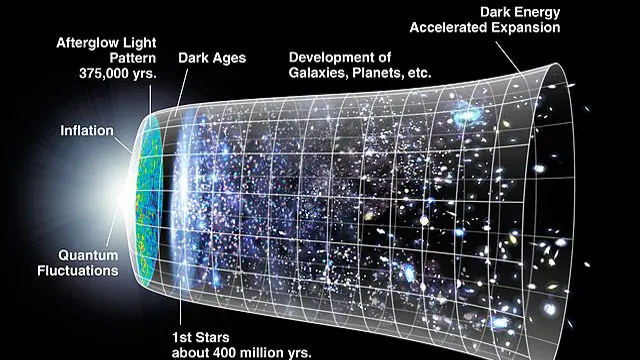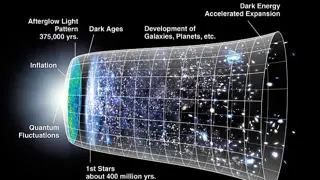
Cosmology Online Diploma
Online course with certificate and transcript included in the price
Elearn College
Summary
- Certificate of completion - Free
- Exam(s) / assessment(s) is included in price
Add to basket or enquire
Overview
Cosmology is a branch of astronomy that involves the origin and evolution of the universe, from the Big Bang to today and on into the future. According to NASA (opens in new tab), the definition of cosmology is "the scientific study of the large scale properties of the universe as a whole."Cosmology, field of study that brings together the natural sciences, particularly astronomy and physics, in a joint effort to understand the physical universe as a unified whole.
If one looks up on a clear night, one will see that the sky is full of stars. During the summer months in the Northern Hemisphere, a faint band of light stretches from horizon to horizon, a swath of pale white cutting across a background of deepest black. For the early Egyptians, this was the heavenly Nile, flowing through the land of the dead ruled by Osiris. The ancient Greeks likened it to a river of milk. Astronomers now know that the band is actually composed of countless stars in a flattened disk seen edge on.
Cosmologists puzzle over exotic concepts like string theory, dark matter and dark energy and whether there is one universe or many (sometimes called the multiverse). While other aspects astronomy deal with individual objects and phenomena or collections of objects, cosmology spans the entire universe from birth to death, with a wealth of mysteries at every stage. Humanity's understanding of the universe has evolved significantly over time. In the early history of astronomy, Earth was regarded as the center of all things, with planets and stars orbiting it. In the 16th century, Polish scientist Nicolaus Copernicus suggested that Earth and the other planets in the solar system in fact orbited the sun, creating a profound shift in the understanding of the cosmos, according to The Royal Society (opens in new tab). In the late 17th century, Isaac Newton calculated how the forces between planets — specifically the gravitational forces — interacted.
Description
From the Cosmology Diploma Course, you will learn about various aspects of the universe, including theories that aim to explain its origins and the various models used to understand it.
The Cosmology Diploma Course begins with a definition of the subject’s parameters, its history, impact, and the different types of cosmology - physical, religious, metaphysical and esoteric.
You’ll explore cosmological observations - such as the cosmic microwave background, redshift surveys, gravitational wave observations, neutrino observations and dark matter sea. The course discusses inflation and the very early universe - delving into the flatness problem, the horizon problem, the monopole problem, the inflation solution and the physics of inflation. It also covers visible matter, dark matter in galaxies, and gravitational lensing, and explains what dark matter is.
Through studying the Cosmology Diploma Course, you’ll discover several cosmological theories that have been developed throughout history. These include the Copernican universe, cartesian universe, Anaxagorian universe, atomist universe, the partially heliocentric universe and oscillating universe theories.
We consider the various Big Bang models, with a look at the initial hypotheses of the Friedman model, the standard model, parametric tests, paradoxes of the standard model and non-standard models.
The Cosmology Diploma Course concludes with a look at fractal models - fractal geometry, fractal structures, multifractal properties of luminous matter distribution, and Newtonian fractal models.
Who is this course for?
From theories to physics, philosophy to science, if you are interested in the wider universe and humanity’s place in it, the Cosmology Diploma Course will take you on a journey of discovery that will bring you closer to the stars than ever before and provide humbling insight into this fascinating subject.
Requirements
There are no entry requirements. No background training or qualifications are required. Anyone can enrol at any time, beginners, intermediates and experienced all year round.
Career path
As a researcher in commercial or non-commercial research organizations
In a development and testing laboratory
Colleges and Universities teaching astronomy and cosmology
Questions and answers
Currently there are no Q&As for this course. Be the first to ask a question.
Certificates
Certificate of completion
Digital certificate - Included
Pdf certificate and transcript included in the price
Reviews
Currently there are no reviews for this course. Be the first to leave a review.
Legal information
This course is advertised on reed.co.uk by the Course Provider, whose terms and conditions apply. Purchases are made directly from the Course Provider, and as such, content and materials are supplied by the Course Provider directly. Reed is acting as agent and not reseller in relation to this course. Reed's only responsibility is to facilitate your payment for the course. It is your responsibility to review and agree to the Course Provider's terms and conditions and satisfy yourself as to the suitability of the course you intend to purchase. Reed will not have any responsibility for the content of the course and/or associated materials.


